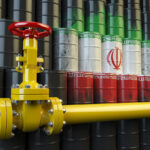PRIX Index predicts little change in the exports of the world’s 20 largest exporters due to politics
Oil exports are expected to remain static in the world’s 20 largest exporters according to the latest release of the PRIX global index. The PRIX index forecasts political developments that can affect oil exports from the world’s 20 largest exports based on a scale of 0 to 100, with 0 representing a maximum decrease in exports, 100 representing a maximum increase in exports, and 50 representing no change. The PRIX index score for the first three months of the year is 50.06 based on input from 290 country analysts, indicating there will be little change in exports for the first quarter.
While the country analysts do not expect overall world exports from the world’s 20 largest exporters to decline, the survey suggests that oil will continue to flood the market at the same rate it has in the past three months, leaving the global market oversupplied.
Some OPEC members are expected to lower production over the course of the first quarter, however. Algeria, Angola, Ecuador, Nigeria, Venezuela, and the group’s largest producer Saudi Arabia are all expected to lower production due to political reasons in the first quarter of 2016. Saudi Arabia’s production declined in November by 25.2 MBOPD, but still remained above 10 MMBOPD, according to OPEC’s December Oil Market Report. The lower production from these countries is expected to be offset by higher production in others tracked by the PRIX index.

Canada was also among the group of countries expected to lower production over the next three months. The PRIX report calls Cana’s low index score a “conundrum as it is not an unstable country where one might expect politics to have a big impact on short-term oil exports.” While the new Trudeau government does not appear to be anti-oil and gas, it is certainly less supportive than the Harper administration that preceded him.
“Perhaps the Canadian country analysts expect costly oil sands production … to decline due to a combination of low prices and the absence of supportive action from the government, both in terms of building pipelines and in terms of fiscal stimulus,” according to the PRIX report.
Some Iranian experts still expecting rapid growth, others not
Iran had the highest index value of any of the world’s top 20 exports in the report released January 5 at 86.84. “The PRIX country analysts remain confident that the Iran nuclear deal … will trigger rapid growth in Iranian oil exports,” said the report.
Iran’s goal is to reach production levels of 5 MMBOPD following the end of a sanctions regime put in place on the country for its nuclear program. In order to achieve that level of output, Iran will require a substantial amount of foreign investment into its oil and gas sector, but it may have a harder time attracting capital than it expects.
“Iran is dreaming that everyone is rushing to invest there,” Dr. Hossein Askari, Iran Professor of International Business and International Affairs at George Washington University, who has acted as an advisor to several international agencies, including the International Monetary Fund, told Oil & Gas 360®. “It will take time. People may want to sell them things, but anyone looking at long-term investment there should have their head checked.”







